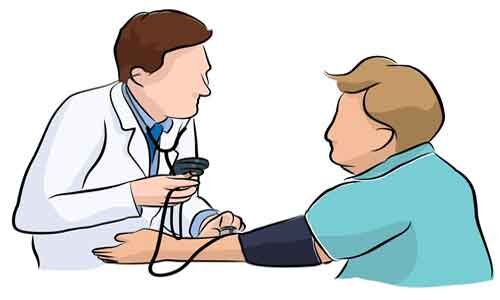- Home
- Medical news & Guidelines
- Anesthesiology
- Cardiology and CTVS
- Critical Care
- Dentistry
- Dermatology
- Diabetes and Endocrinology
- ENT
- Gastroenterology
- Medicine
- Nephrology
- Neurology
- Obstretics-Gynaecology
- Oncology
- Ophthalmology
- Orthopaedics
- Pediatrics-Neonatology
- Psychiatry
- Pulmonology
- Radiology
- Surgery
- Urology
- Laboratory Medicine
- Diet
- Nursing
- Paramedical
- Physiotherapy
- Health news
- Fact Check
- Bone Health Fact Check
- Brain Health Fact Check
- Cancer Related Fact Check
- Child Care Fact Check
- Dental and oral health fact check
- Diabetes and metabolic health fact check
- Diet and Nutrition Fact Check
- Eye and ENT Care Fact Check
- Fitness fact check
- Gut health fact check
- Heart health fact check
- Kidney health fact check
- Medical education fact check
- Men's health fact check
- Respiratory fact check
- Skin and hair care fact check
- Vaccine and Immunization fact check
- Women's health fact check
- AYUSH
- State News
- Andaman and Nicobar Islands
- Andhra Pradesh
- Arunachal Pradesh
- Assam
- Bihar
- Chandigarh
- Chattisgarh
- Dadra and Nagar Haveli
- Daman and Diu
- Delhi
- Goa
- Gujarat
- Haryana
- Himachal Pradesh
- Jammu & Kashmir
- Jharkhand
- Karnataka
- Kerala
- Ladakh
- Lakshadweep
- Madhya Pradesh
- Maharashtra
- Manipur
- Meghalaya
- Mizoram
- Nagaland
- Odisha
- Puducherry
- Punjab
- Rajasthan
- Sikkim
- Tamil Nadu
- Telangana
- Tripura
- Uttar Pradesh
- Uttrakhand
- West Bengal
- Medical Education
- Industry
Amlodipine has lower gout risk compared to other antihypertensives: Study

Gout is a common complication of blood pressure management and a frequently cited cause of medication nonadherence. Some blood pressure-lowering drugs are also implicated with regard to gout risk.
Researchers have found that the antihypertensive medication amlodipine is associated with a lower risk for gout compared to other antihypertensive agents The study has been published in the Journal of Hypertension.
Dr Stephen P. Juraschekfrom Harvard Medical School in Boston and colleagues examined the relationship between antihypertensives and gout using data from the Antihypertensive and Lipid-Lowering Treatment to Prevent Heart Attack Trial, a randomized clinical trial that measured the effects of amlodipine, chlorthalidone, and lisinopril on fatal coronary heart disease and nonfatal myocardial infarction. The authors linked trial data for 23,964 participants to gout claims from the Centers for Medicare & Medicaid Services and Veterans Affairs.
The researchers found that compared with chlorthalidone and lisinopril, amlodipine was associated with a 37 and 26% lower risk for gout, respectively (hazard ratios, 0.63 [95% CI, 0.51 to 0.78] and 0.74 [95% CI, 0.58 to 0.94]), respectively). Compared with chlorthalidone, lisinopril also was associated with lower gout risk, although this difference was not significant (hazard ratio, 0.85; 95% confidence interval, 0.70 to 1.03). Treatment with atenolol was not associated with gout risk (hazard ratio, 1.18; 95% CI, 0.78 to 1.80). The reduction in gout risk was mostly observed after one year of follow-up.
The researchers concluded that Amlodipine lowered long-term gout risk compared with lisinopril or chlorthalidone. The finding may be useful in cases where gout risk is a principal concern among patients being treated for hypertension.
"Our study is clinically relevant as the prevalence of gout has been rising in the United States and the number of Americans meeting newly-revised diagnostic thresholds for hypertension has doubled," Juraschek said in a statement. "Our study demonstrated that amlodipine was associated with a lower risk of gout compared with chlorthalidone or lisinopril, which has never been reported prior to this study."
For further reference log on to:
Dr Kamal Kant Kohli-MBBS, DTCD- a chest specialist with more than 30 years of practice and a flair for writing clinical articles, Dr Kamal Kant Kohli joined Medical Dialogues as a Chief Editor of Medical News. Besides writing articles, as an editor, he proofreads and verifies all the medical content published on Medical Dialogues including those coming from journals, studies,medical conferences,guidelines etc. Email: drkohli@medicaldialogues.in. Contact no. 011-43720751


